


Can’t find the login link?
By the end of this guide, you will learn different methods on how to find the login URL in WordPress so you can get inside.
Here’s a sneak peek of what’s inside:
Ready? Let’s get started!
Finding your WordPress login page URL is an important step for managing your website, as it allows you to access the dashboard.
This URL acts as the primary entry point for site administration, enabling you to maintain and update your site efficiently.
Moreover, it ensures secure access to your site’s backend, safeguarding against unauthorized changes and potential security threats.
For most WordPress installations, accessing your login page is straightforward.
The default URLs are typically:
website.com/wp-login.phpwebsite.com/wp-adminReplace website.com with your domain name.
If you’re using a subdomain or have WordPress installed in a subdirectory, your login URL might look like one of these:
subdomain.yourdomain.com/wp-login.phpurdomain.com/subdirectory/wp-login.phpTry them out first before you proceed with the next section. 🙂
If nothing worked, you should know that some web hosts change the default login URL for security reasons.
If you can’t find your WordPress login page using the standard URLs, here are ways to find or access your custom WordPress login URL:
Many web hosting providers understand the importance of easy access to the WordPress dashboard for website administrators.
To facilitate this, they often include a direct link to the WordPress dashboard within their hosting control panel.
Generally, here’s what you have to do:
For example, in Hostinger, you can easily see a button right inside the WordPress admin dashboard that will take you to the admin panel.
Like this:
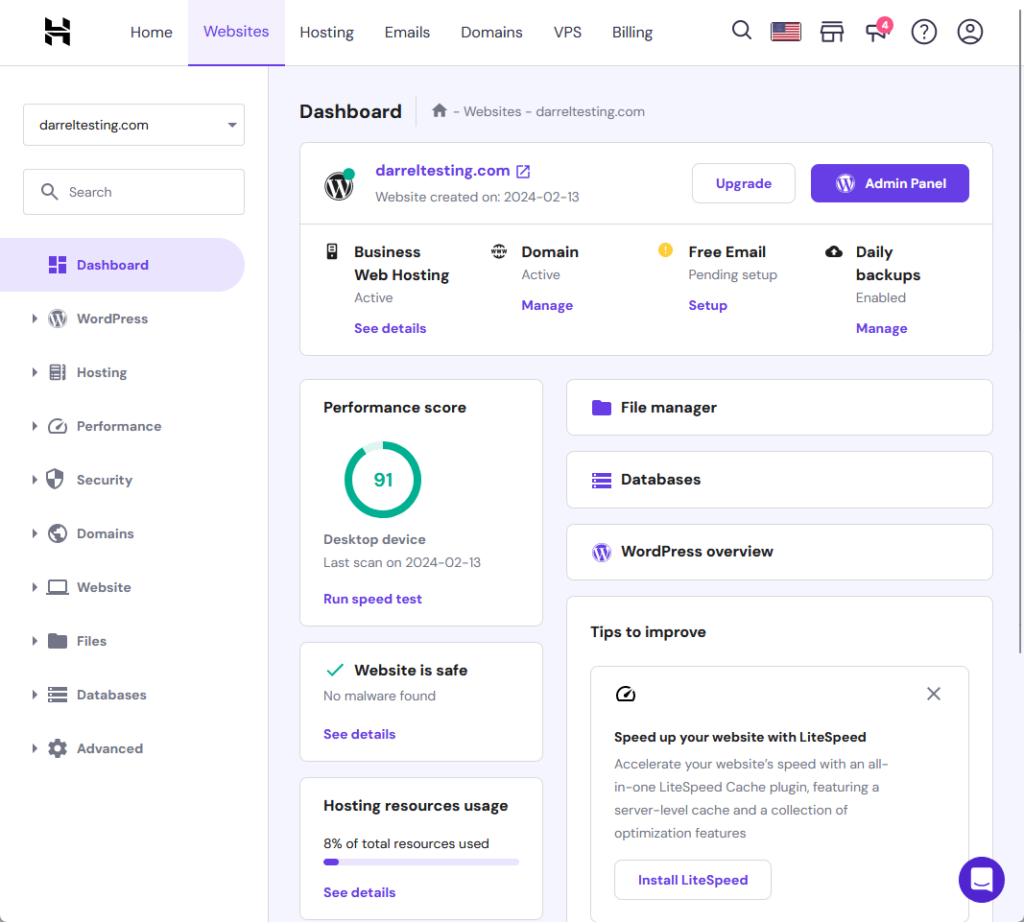
👉 Related: Hostinger Review: Budget-Friendly Hosting Powerhouse?
This approach bypasses the need to remember or bookmark your WordPress login URL as it’s a straightforward path to your dashboard from the hosting environment.
It’s clear that choosing the right hosting provider is pivotal for both security and ease of access.
This brings us to the undeniable benefits of choosing Hostinger as your hosting ally.

Discover the Hostinger advantage for your WordPress site:
Before moving on to checking your email for login details, consider how Hostinger could streamline your WordPress site management
After installing WordPress, some hosting providers automatically send a welcome email that includes important information about your new website.
This email often contains the WordPress login URL, along with other useful details like administrative credentials and links to support resources.
Here’s an example from Dreamhost:
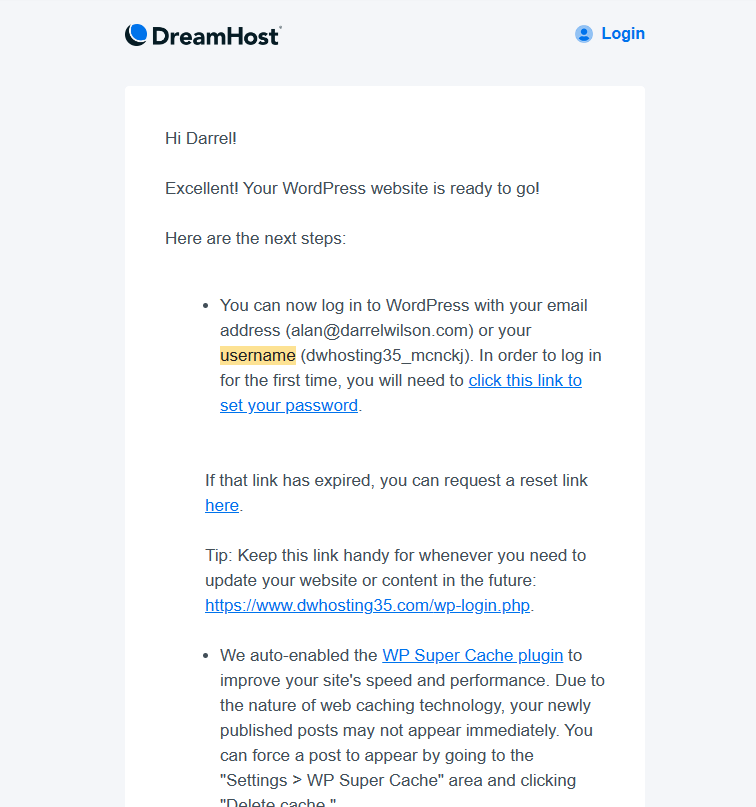
This method is particularly helpful if you’ve just set up your WordPress site and haven’t yet customized the login URL.
If you’ve customized your WordPress login URL for security reasons and can’t recall the new address, you can use FTP to access your site’s files and verify the login path.
Here’s how:
wp-login.php file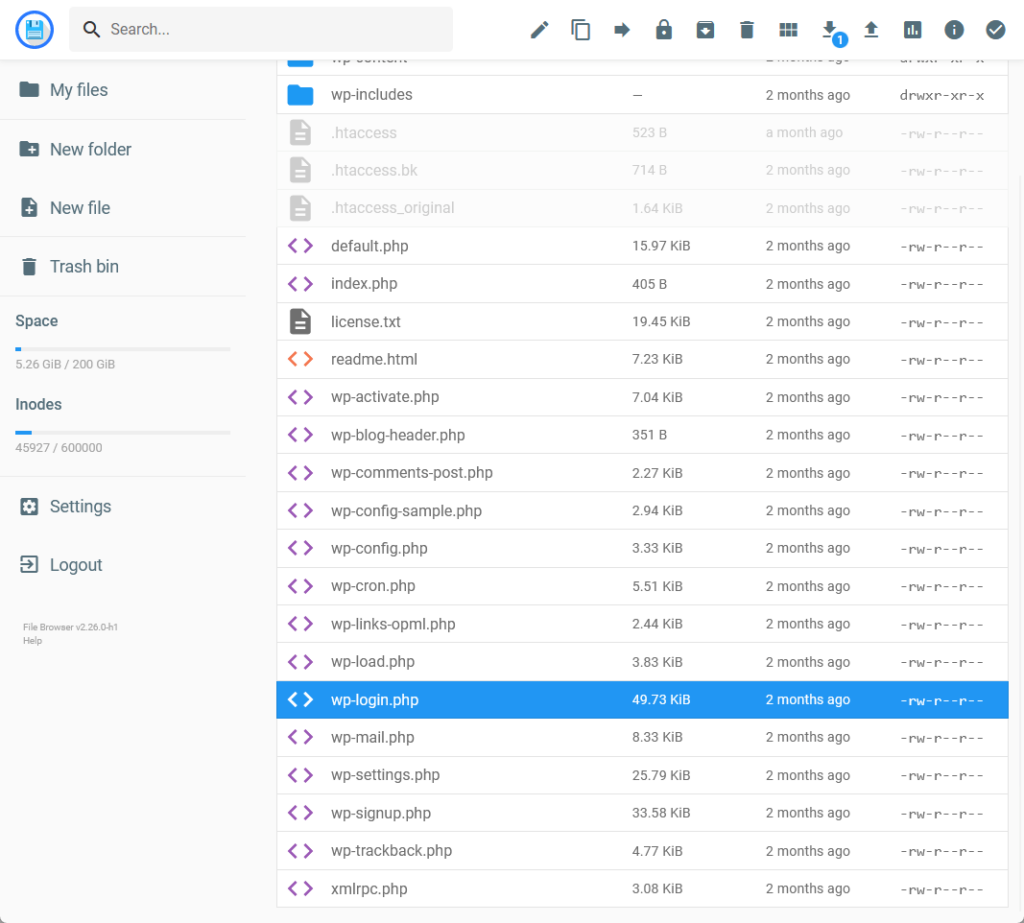
While this method won’t directly reveal a custom login URL, it confirms the standard login file’s presence, which means the URL likely hasn’t been drastically altered.
The more you access your website’s backend dashboard, the more you get used to the URL or link of the login page.
However, there will certainly be times when your mind will go blank and will seem to forget the login URL, especially if it’s a custom one. 😅
Once you’ve located your WordPress admin login URL, it’s a good idea to bookmark it in your web browser.
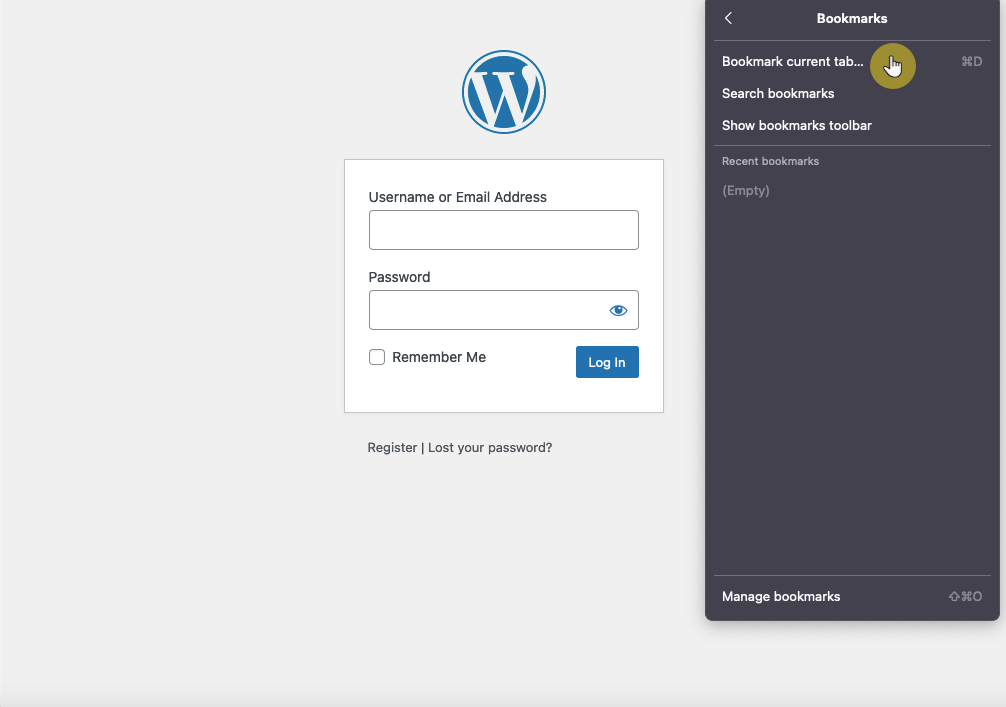
Having the login page bookmarked means you’re always just one click away from accessing your dashboard.
Adding a login link to your WordPress website can be a convenient shortcut for you and other authorized users.
The best way to do this is add the link to your menu:
Like this:
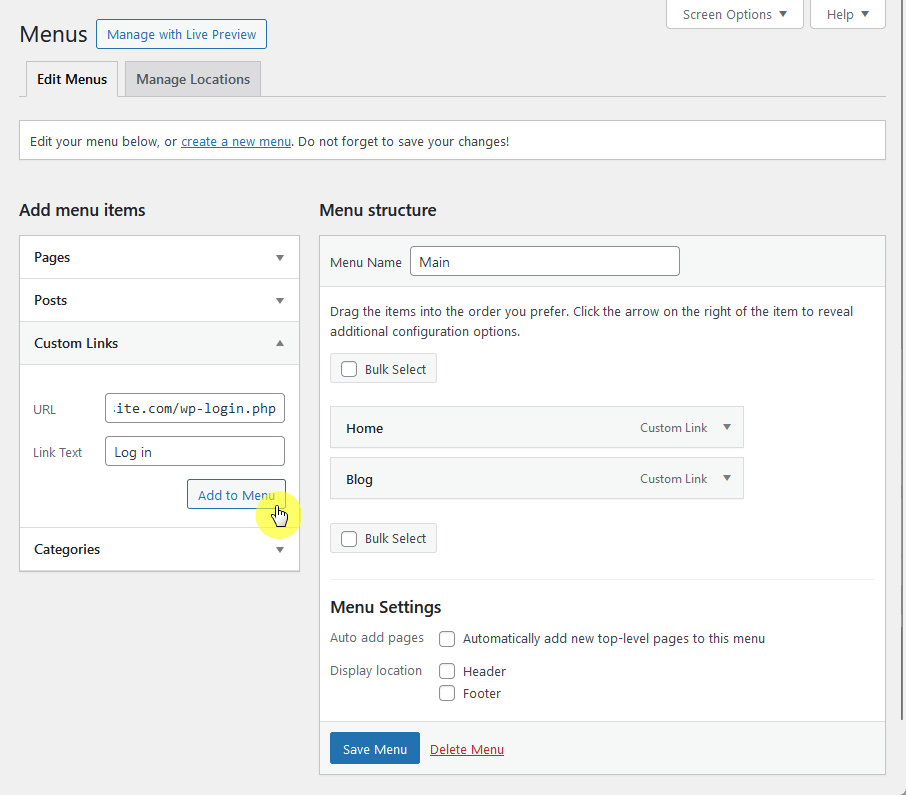
While this method provides an on-site login access point, others with ill-intent might take advantage of this — so think it over carefully.
When logging into WordPress, you can select the “remember me” checkbox before hitting the login button.
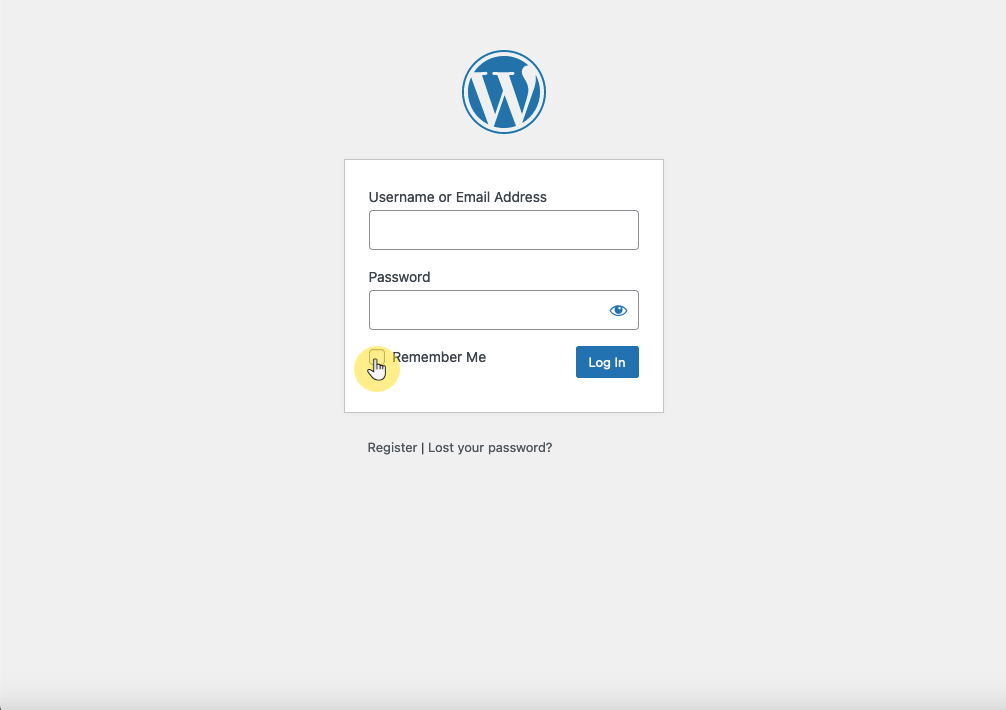
⛔ Warning: Don’t do this if you’re using a public or shared device as others would be able to easily log into your website’s back-end.
Finding your WordPress login URL is important for website management as it allows you to perform administrative tasks efficiently.
If you’ve customized your login URL for added security, it’s important to keep a record of it to prevent access issues.
Familiarizing yourself with the methods to retrieve or remember your login URL ensures seamless access to your dashboard.
Wrapping up, it’s time to take the design of your site to the next level.
The final piece of the puzzle is ensuring your site not only functions well but also looks impeccable — with template kits.

Secure lifetime access to all premium Elementor template kits:
Level up your WordPress site with Elementor Template Kits.
It’s not just about making your site look better — it’s about offering a superior browsing experience for your visitors.